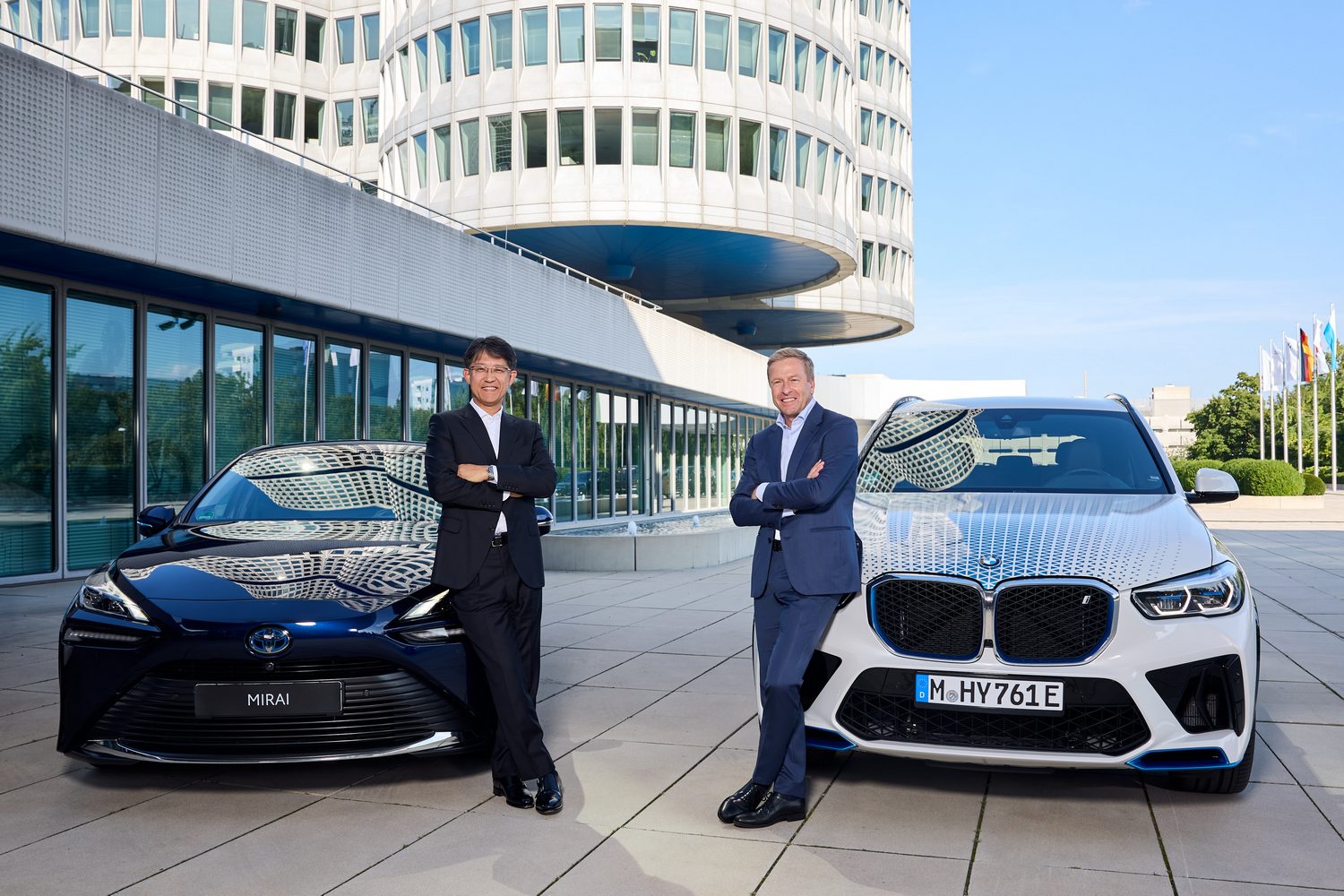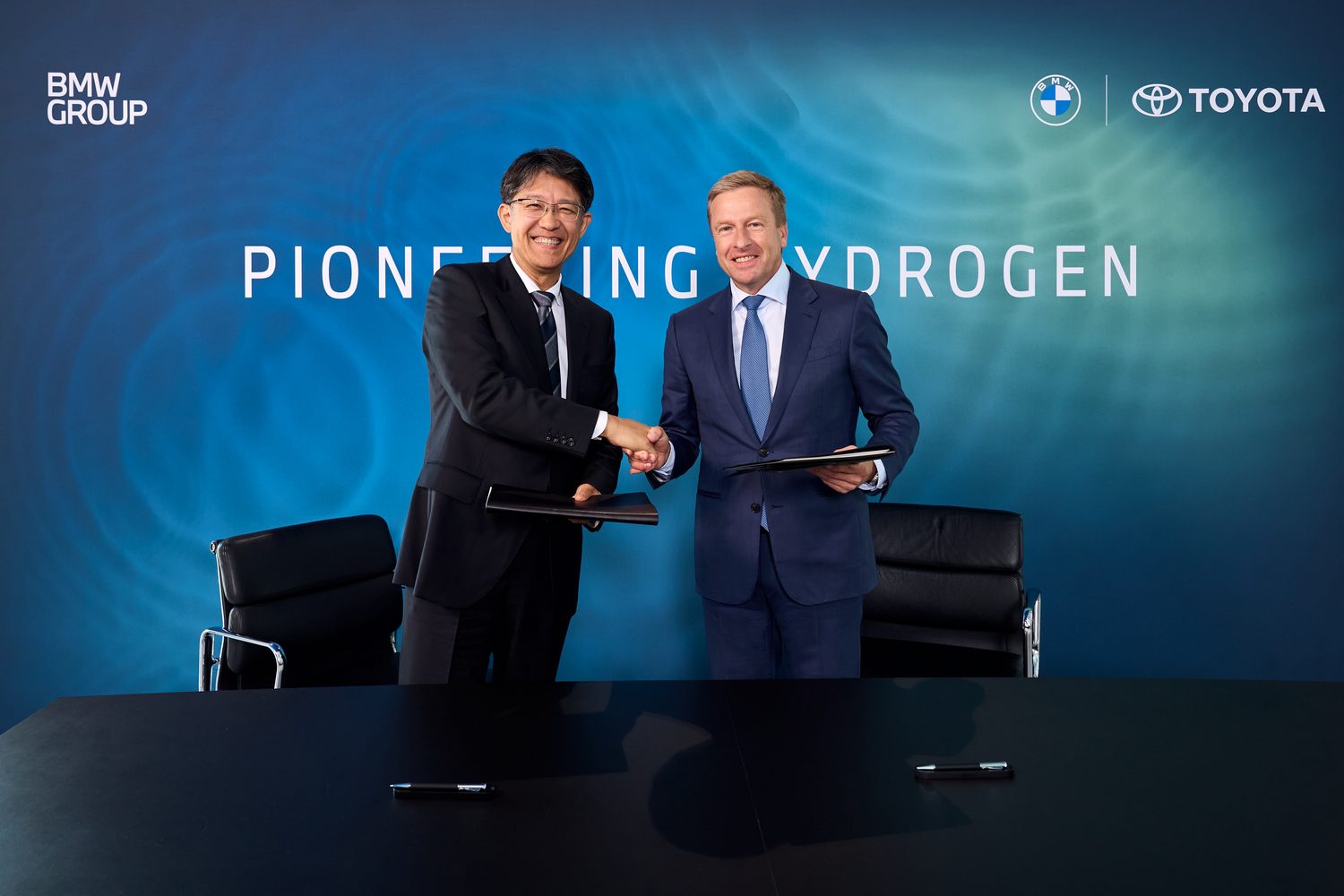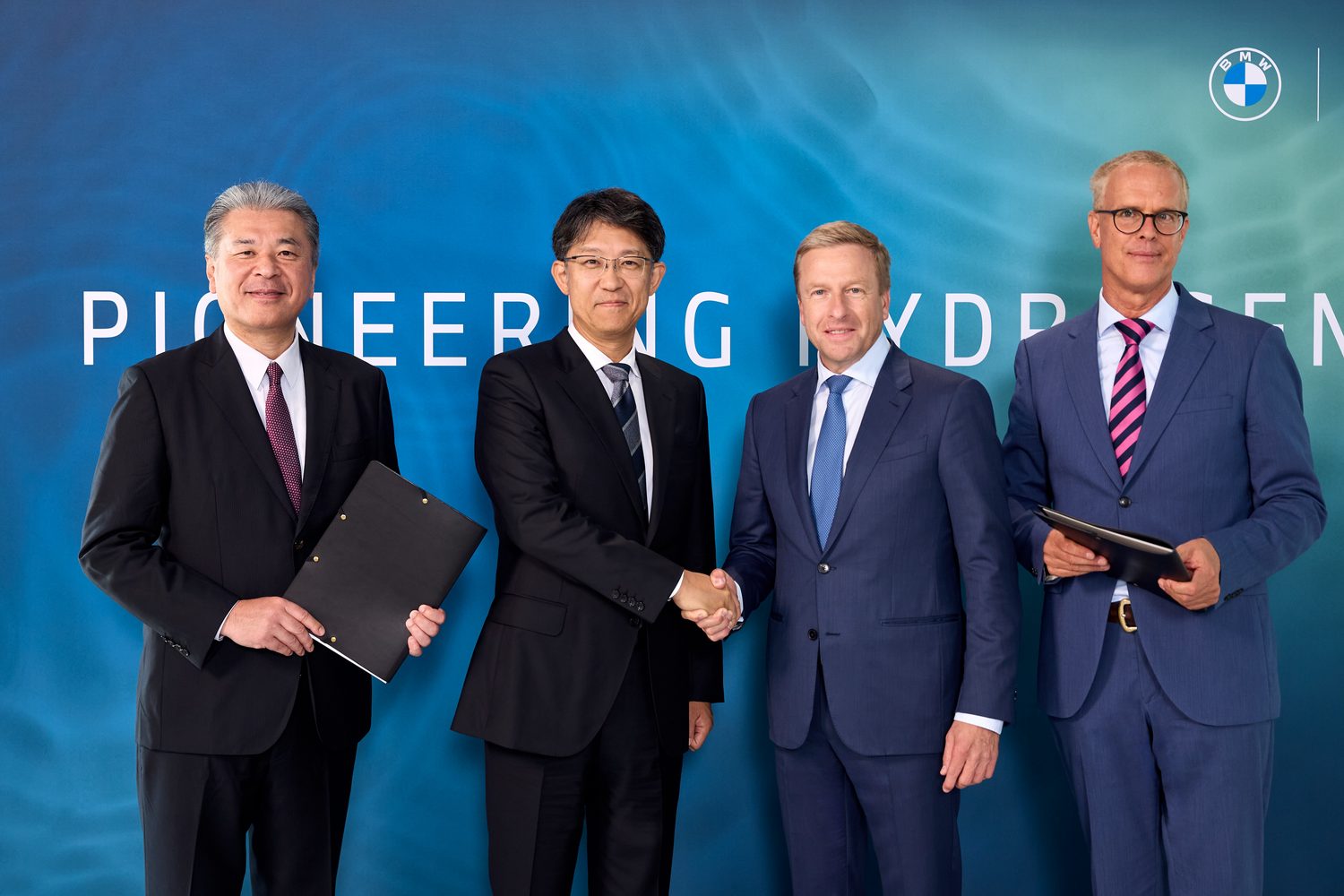BMW has confirmed its intention to launch a production hydrogen fuel cell car in 2028 as part of a joint venture with Toyota. The two companies have been working on the technology, which uses hydrogen fuel cells to power an electric motor, for some time, but only Toyota has previously brought a fuel cell electric vehicle (FCEV) to market. Now, having teased us with the iX5 Hydrogen prototype, BMW plans to introduce a full-production FCEV in three years.
Hold on. How does this hydrogen FCEV tech work?
Essentially, the car uses hydrogen fuel cells to create electricity, which is then used to power the car’s electric motor. In effect, it’s an electric vehicle (hence the EV part of FCEV) but you don’t charge it up. Instead, you fill up with hydrogen - a process that’s fairly straightforward and takes a similar amount of time to filling up a petrol or diesel car. And because hydrogen fuel cells work, there’s only one tailpipe emission: pure water, albeit normally in vapour form.
This sounds like a great idea. What’s taken them all so long?
The short answer is that it hasn’t. Hyundai, Honda and Toyota have all brought hydrogen fuel cell cars to market, but they haven’t really caught on. That’s partly because there’s very little in the way of hydrogen fuelling infrastructure either in Ireland or elsewhere in the world, so those who buy an FCEV have nowhere to fuel it, and partly because there’s some debate about whether hydrogen is the greenest way to fuel a car.
Haven’t you already driven a hydrogen-powered BMW?
Well remembered. Yes, we drove the iX5 Hydrogen prototype last summer and came away impressed, even though the car was never meant to go on sale. Instead, it was a kind of pilot scheme for BMW to assess the feasibility of such a car and potential customer interest. Now, BMW sees FCEV technology as a complement to battery-electric vehicles, working for those who drive larger cars, tow trailers, or live in out-of-the-way places where charging is tricky. On that basis, the iX5 Hydrogen made perfect sense, but whether that will be the application for the next-generation FCEV remains to be seen.
So, what’s going on with this joint venture?
Toyota and BMW have been partnering for some time to develop hydrogen powertrains, and the two companies are now promising to put a “new generation” of FCEV technology on the road. The brands’ shared fuel cell tech will allow hydrogen power to be used in commercial vehicles such as vans, as well as in passenger cars, and will cut development costs for both firms. Despite the shared technology, both companies have pledged to retain their models’ “distinct brand identities and characteristics.”
BMW has now pledged to bring its first FCEV to market in 2028, following the “successful” pilot scheme involving the iX5 Hydrogen. As with those prototypes, BMW will not bring out dedicated FCEV models but will instead utilise the technology in an existing vehicle as an alternative powertrain, just as it currently does with some of its battery-electric vehicles. As a result, there’s no indication of which vehicles will be first to receive the FCEV technology, but with just three years to run before the first car is unveiled, we won’t have long to wait.
What have BMW and Toyota said about all this?
This is a milestone in automotive history,” said BMW AG’s chairman of the board of management, Oliver Zipse. “[It will be] the first ever series production fuel cell vehicle to be offered by a global premium manufacturer… and it will herald an era of significant demand for fuel cell electric vehicles.”
Meanwhile, Koji Sato, from the Toyota Motor Corporation’s board of management, said: “We are pleased that the collaboration between BMW and Toyota has entered a new stage. In our long history of partnership, we have confirmed that BMW and Toyota share the same passion for cars and belief in technology openness. Based on these shared values, we will deepen our collaboration… aiming for the realisation of a hydrogen society.”




